[متوفر باللغة العربية من هنا]
Ten years have passed since the start of the Syrian war. This war, however, was not the only burden that affected the Syrian people, but the external restraints and internal ramifications have been causing more challenges on many levels.
We’ve started a series of articles to list those challenges concerning the technology domain inside Syria; we’ve begun with our first article to discuss the first challenge regarding the restriction of services imposed by other countries. After that, we’ve introduced the second challenge which was the restriction of learning platforms and its long term impact on the Syrian community in the past decade.
We will continue in this article discussing two new challenges, then we’ll resume on the same path until we reach the most important step which is concluding lessons for the future.
Let’s start with the third challenge.
Challenge No.3: Unfair World Wide Web

It’s well known that we exist inside the World Wide Web, this network connects all the world and lets anybody reach from one side of the world to the other one with the click of a button.
Despite the name of this network and being for all the ‘world’, this doesn’t mean all of its users are equal in terms of privileges and rights. I mean by that a user from a ‘first’ country possessing more quality of services & features than another user in a ‘second’ country, despite they’re using the same exact service and visiting the same website.
This problem has affected technology in Syria for the last ten years, and even before that.
The following points give a clear idea about this topic:
- Syria doesn’t exist in the “Select your country” list:
Some online services ask for user’s country upon new registration, despite those services doesn’t block the Syrian user, but they don’t include Syria in their list of countries.
Let’s take Apple as an example:
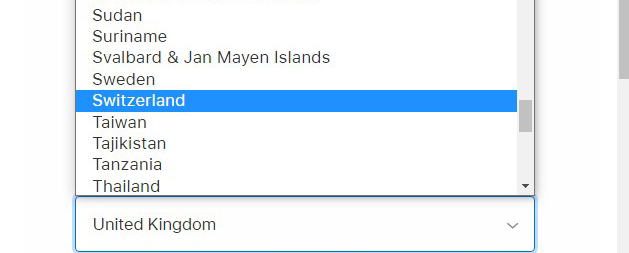
Apple allows their devices to be used in Syria and they regularly send system updates too, but it’s not possible to pick Syria during the registration as it simply doesn’t exist in the list.
This problem arises again in Twitter and many other services, where it’s not possible to create a new account tied with a Syrian phone number.
- Restricted digital ads:
Digital marketing in Syria is crippled by the inability to target users with ads. We can take Facebook as an example, which is considered the most used social platform in Syria; it’s not possible to create any advertising campaigns to target Syrian users.
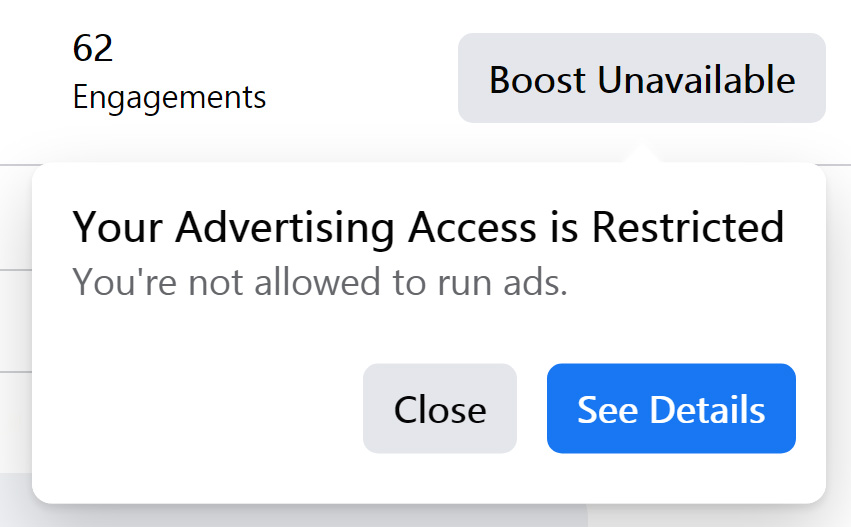
Despite this point can be considered as a positive thing while using Youtube (there are no Youtube ads in Syria), but it can be a serious issue for advertisers and marketers. As a solution for this issue, they use Facebook pages to publish ads manually, and they may use another way which can be considered worse but effective; hiding some information and requesting followers to comment in order to get that information, that way they get more engagement thus higher reach. As a result, this sentence has been appearing a lot in the Syrian community on Facebook: “please make a comment to receive the information you need via messages”.
- Lower speeds and quality of services:
Users regularly notice some services are slower in Syria, which is not always due to internal causes but rather services themselves. This means even if external services are working in Syria, they aren’t at the same speed nor quality compared to other countries, and whether this issue is caused by Net Neutrality or not, global tech companies usually focus on users who have the potential to make revenue (directly or indirectly via ads).
This issue appears on a different scale from time to time (i.e. Facebook and YouTube). Users try to use some VPN services to get more speed despite those services are not blocked.
As we’ve seen, the World Wide Web is not fair to Syrian users.
If we go back to the origin of the web network, we can see that it was invented to form a common ground for all the world, this revolutionary concept has changed human civilisation forever.
Unfortunately, this change is not always going toward the positive side, I have talked before about how the web is going through a negative change; I mentioned a video for Michio Kaku explaining the development of human civilisation and how it’s evolving toward Information Technology era where all humanity is connected together.
But what is happening now is totally on the other side of that… Geographic borders are being redrawn between users on the internet, and they’re being discriminated and blocked depending on that. This leaves us with the following question:
“Is there any justice in prohibiting people from their right to access some resources because they were born in someplace?”
We leave this question unanswered, hoping to be answered by our decision-makers in this world.
Now, let’s talk about a new type of challenges, which can be considered also a serious one affecting tech in Syria… It’s the economic obstacles caused by the war.
Challenge No.5: The Economic Obstacles

Discussing these kinds of challenges needs a deep sight indeed. As there are more experienced people to do that, we will only focus on a tech-related perspective.
The following points explain some conditions under the shadow of Syria’s current economic situation:
- Outer sanctions on financial transactions:
As a result of uni-directional sanctions on Syria, Syrians are having many difficulties when dealing with any kind of money transactions and transferring from/to Syria. For example:
– Any kind of credit cards are not available, such as Visa Cards & Master Cards, not mentioning global bank accounts.
– Paypal and other alike services are restricted from operating inside Syria too.
As for individuals, this means they won’t be able to take benefit from services even if they are not blocked.
But for businesses, this becomes a major problem; any ties between the external business community and the internal one is totally severed. Making any deals and transactions with any outer parties is not easily possible.
To sum it up, any inbound or outbound financial transactions for both individuals and businesses are difficult for now.
- Significant difference in currency exchange rates:
As an outcome of the long war and the outer restraints, the Syrian Pound exchange rates have gone through the roof compared to global currencies.
This problem led to struggles in importing hardware, therefore, freezing the tech community and leaving it in a hard position to keep up with the global community:
– It’s hard to upgrade any kind of hardware because of the previous reason. This may include computers, infrastructure equipment, mobile phones, etc…
As a result, the level of hardware inside Syria is kept behind the global market, this creates more consequences for the tech domain; using new software and apps on hardware considered outdated and old.
– The ongoing negative attitude of the Syrian community to accept the concept of digital operations such as paying to obtain services and apps (something that’s not physical).
- Low-income rates:
This issue affects all workers in the Syrian community, not only tech workers. However, tech workers don’t have a local baseline for their income rates, not to mention the direct impact of all the previous challenges on them.
To get a fair idea about the income of tech workers after the war, we can say that the approximate income for an individual in Syria is equal to 5 premium Netflix subscriptions, compared to 22 before the war, which means it’s an 80% drop.
We can notice the spike in ‘more than $300’ at 8%, this is due to working online with external parties.
- Local businesses can’t keep up with international wage rates:
Due to low income locally, the trend has been directed to working with entities outside Syria remotely. Although this trend solves part of the problem for individuals, it creates new dilemmas on another side. We will talk about one of those dilemmas in this part and leave the other one until the next article.
The troubling point is; outside recruiters sometimes provide wages as low as 20%* of what they should be, but because of the high contrast in currency exchange rates, this amount of money is considered tremendous by local workers.
In this situation, local businesses can’t withstand the previous competition, so they started to have difficulties in finding employees locally, and this what kills some startups or hold them down from working on local projects, which if they’d have done, they could provide local sufficiency instead of depending on outer parties.
* According to a statistic I’ve done about tech workers income rates between the international & Syrian community.
We can say that economic challenges are indeed one of the most serious challenges that tech is facing in Syria, alongside previous challenges, they complete the circle of restraints against Syrians by doing the following; (1) Prevent usage of global services, (2) Prevent dealing with international tech businesses, (3) Prevent following up tech trends and global technological advancements.
Our discussion about this topic only shows the tip of the iceberg. Of course, it’s a vast subject to explore, so we focused only on the tech perspective.
Until here, we have reached the end of the second part of this series, in which we’ve talked about the unfair web network and the economic obstacles in Syria.
We can notice how those challenges are dramatically escalating in 2020 & 2021, but we should not lose sight of the greater purpose, our target is always to analyse those challenges and conclude valuable lessons for the future.
“… While sanctions are not the drivers of destruction, they are barriers to recovery”
As written in the United Nations report about the Syrian war in 2020.
In the next part, we will talk about the latest two challenges which are Infrastructure difficulties and society obstacles. The last one will take a great deal of discussion due to its direct impact on the future. After that, listing the challenges will end, so we can start concluding the lessons for the upcoming stage in Syria.
Until then, be safe.
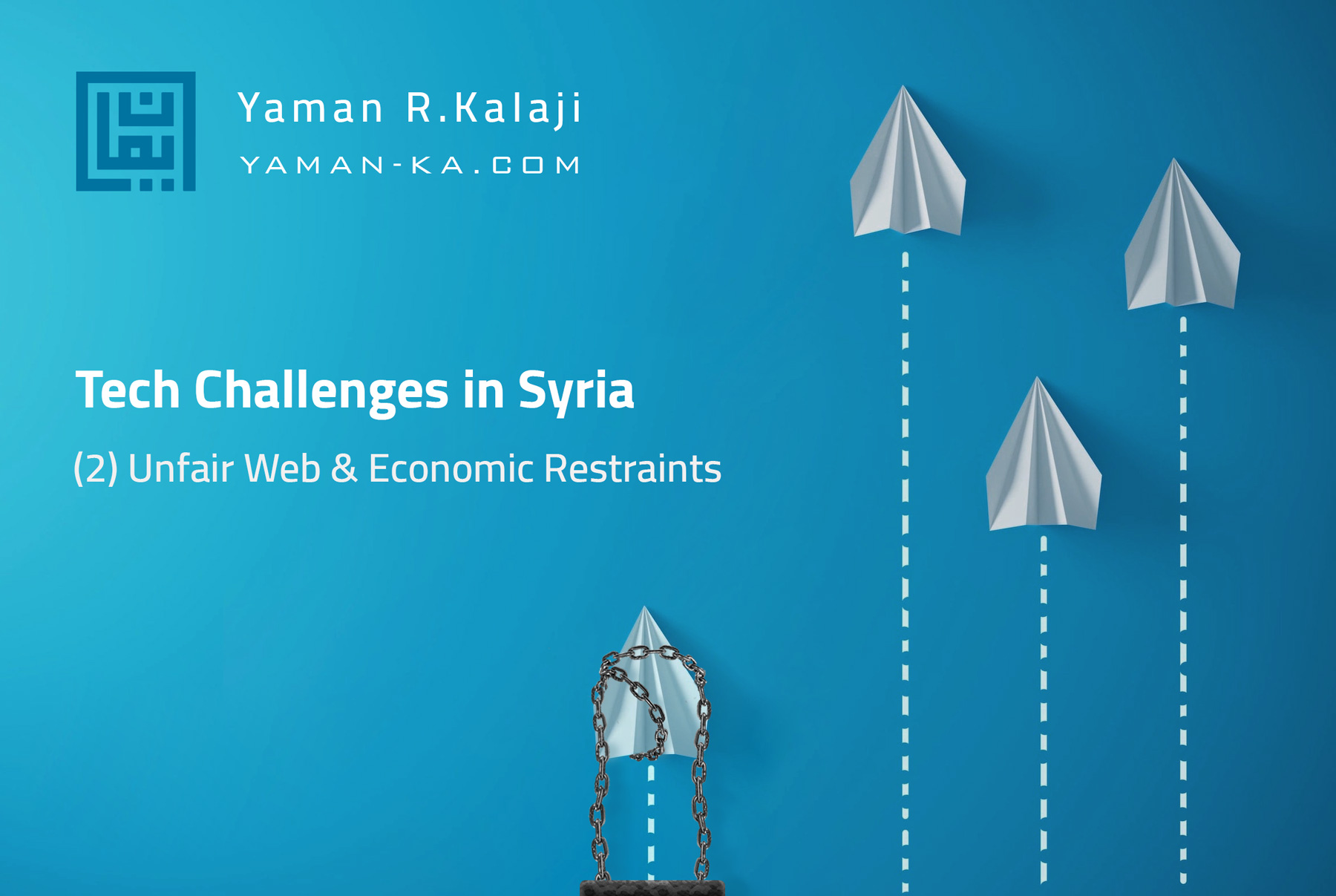
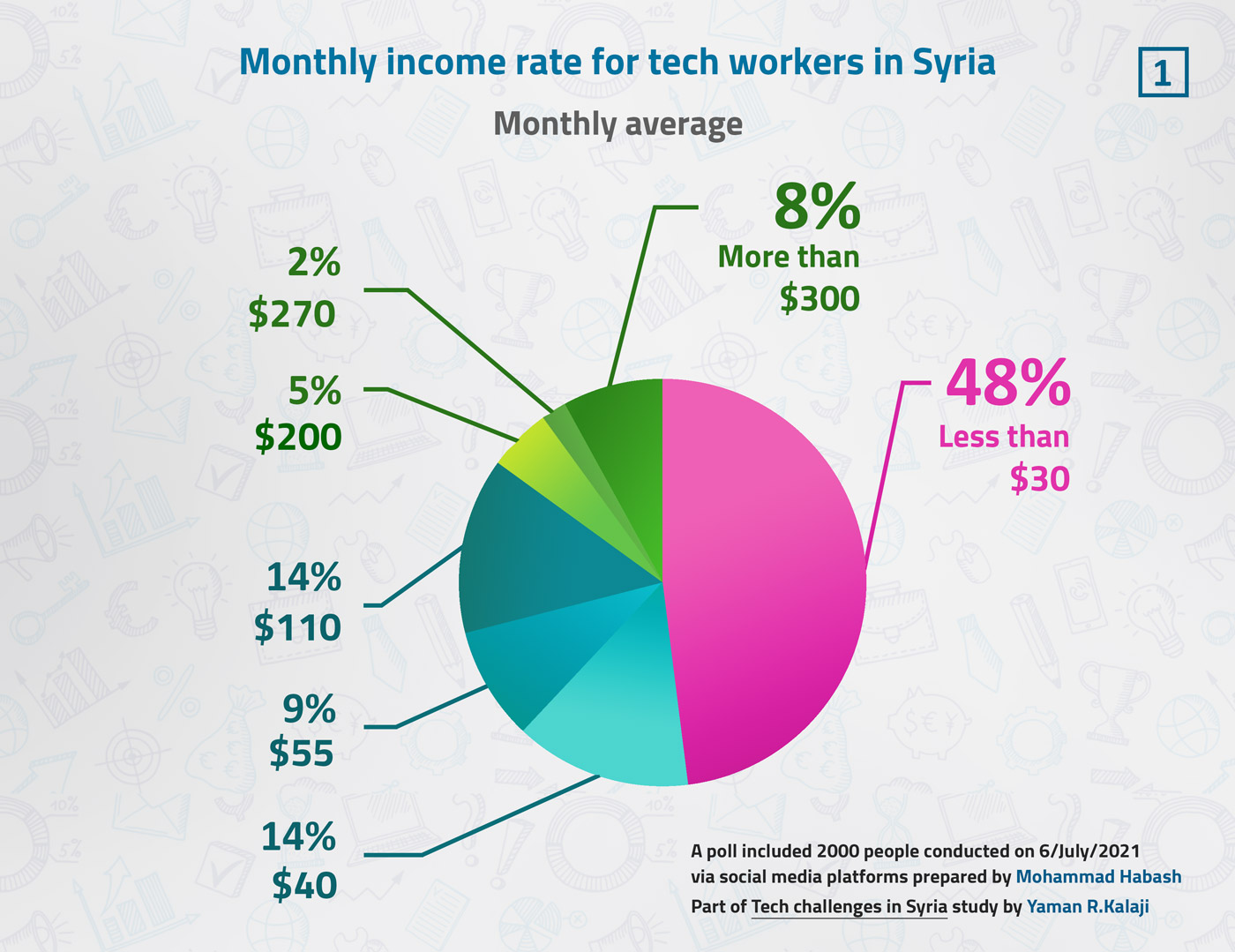
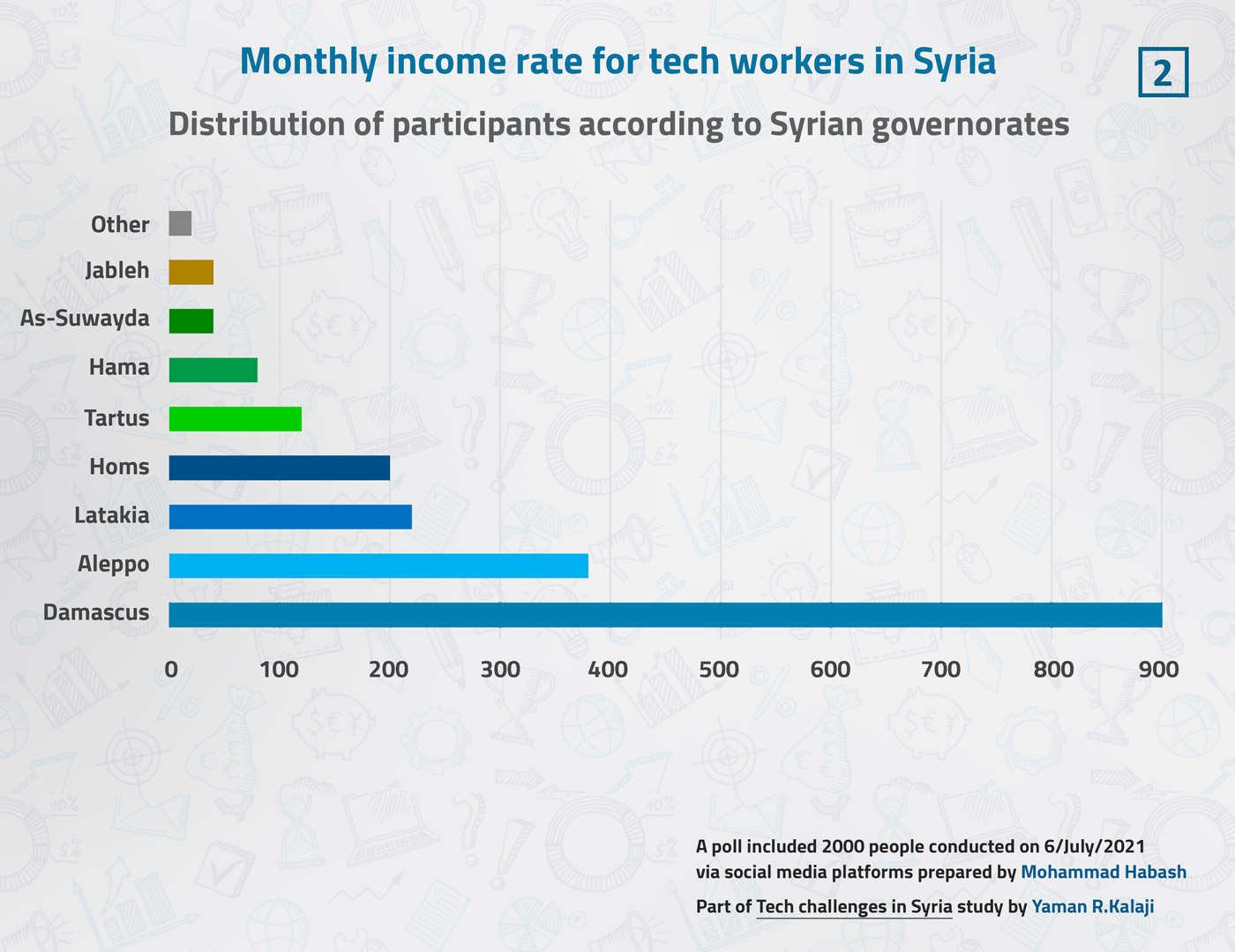
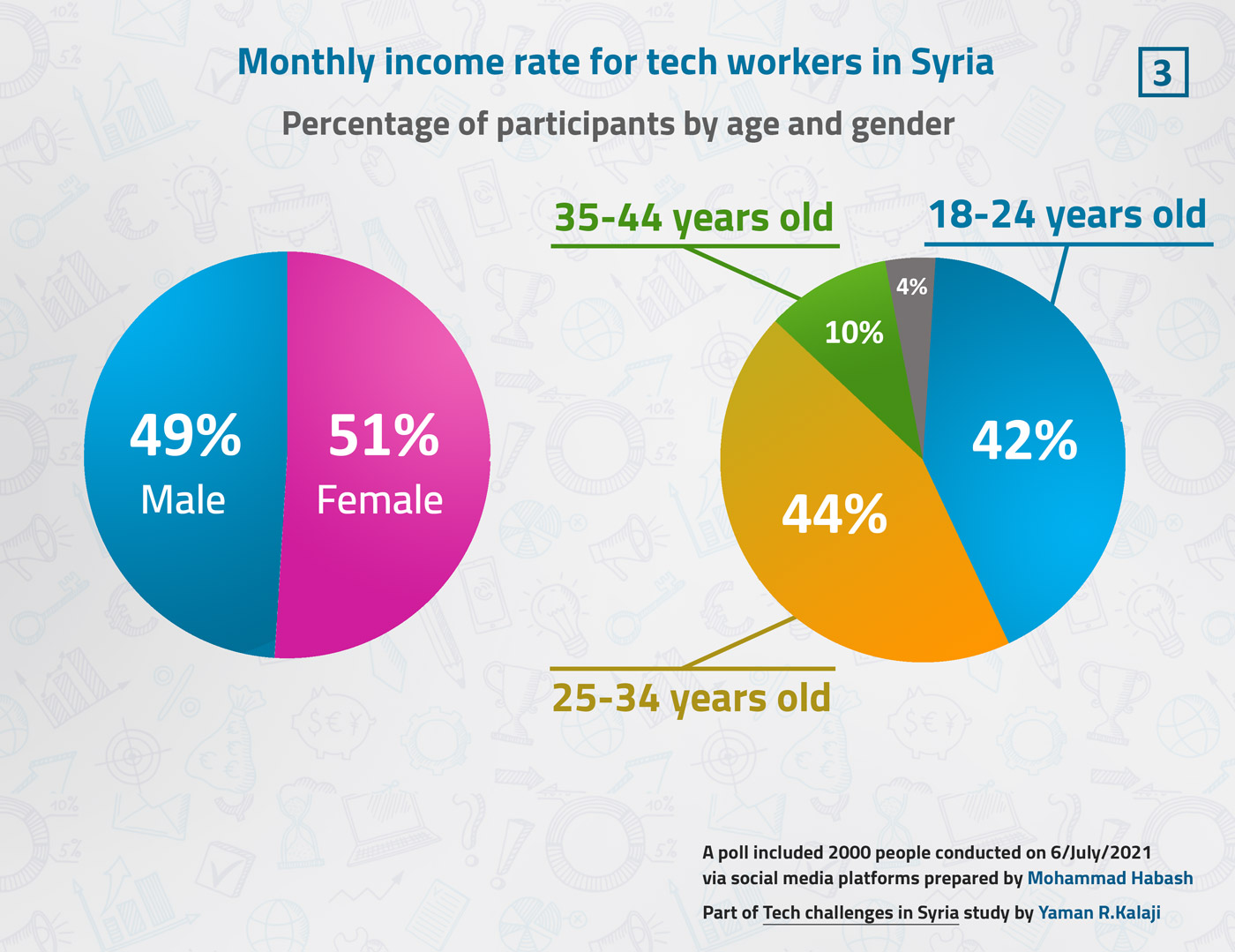
Beyond amazing..really
Thanks so much for your efforts and your time consuming while trying to give the world an idea about what’s happening around, your ideas simulate the truth about suffers in Syria, actually, understanding what is the problem is a main part, however, problem encountering is far important(which you’ll conclude in your next part of the article as you said), because if we don’t know what is the solution of a problem, we will never go forward, what I mean simply is “there is no use crying over spilt milk” -as they say-, so hope people will understand the problem, then the solution and finally applicate it.
Thanks again for the helpful articles, keep going because what you are doing is what people are missing…